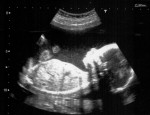Each of the three Sets of Reasons for Judgment in the Majority Opinion is summarized below
–
Dickson CJ and Lamer J:1
- analysis confined to the Charter 7 right to “security of the person” and only in the criminal law context.
- “security of the person” includes protection from state interference with bodily integrity and state imposed psychological distress.
- “security of the person” is violated by 251 in two ways: 1) forcing a woman to carry fetus to term, by threat of criminal sanction, unless she meets certain criteria unrelated to her own priorities and aspirations, is a profound interference with a woman’s body; and 2) delays caused by the procedural requirements of 251 increase the risk of physical harm and psychological stress.
- the violations to “security of the person” were not in accord with fundamental justice because the defence was potentially so difficult to obtain ((because of requirements that hospitals had to be “accredited” or “approved” and that at last four physicians be available) as to be in effect “illusory.”
- the test for danger to woman’s health was “vague” so women would not know ahead of time if they would be approved, thus increasing psychological stress.
- section 251 was “manifestly unfair” as it contained so many potential barriers that the defence it created would be practically unavailable to women who would prima facie qualify for the defence, or at least force women to travel great distances for it.
- the “manifestly unfair” procedures did not comport with the principles of fundamental justice.
(Full analysis of reasons of Chief Justice Dickson and Justice Lamer)
–
Beetz J and Estey J:2
- analysis confined to the Charter 7 right to “security of the person” and only in the criminal law context.
- “security of the person” includes protection from state interference when life or health is in danger; in the criminal law context, state interference means the threat of criminal sanction.
- “security of the person” is violated when a law forces a woman whose life or health is in danger to choose between commission of a crime and either inadequate or no treatment at all.
- the procedural requirements of Criminal Code section 251 significantly delay access to medical treatment for women whose life or health is endangered by a pregnancy, resulting in increased health risks to women, making 251 “manifestly unfair” and so are not in accordance with fundamental justice.
- the following requirements of 251 are manifestly unfair: (1) all therapeutic abortions must take place in an “accredited” or “approved” hospital; (2) the committee must come from the accredited or approved hospital in which the abortion is to be performed; (3) hospital boards are allowed to increase the number of members of a committee; (4) all physicians who perform abortions must be excluded from the committees.
- a life and health standard does not violate “security of the person”
- requirement for a second opinion does not violate “security of the person”
- the definition of “health” is not so vague as to be a violation of fundamental justice.
- protection of the fetus is a pressing and substantial concern and would justify limits on abortion.
(Full analysis of reasons of Justices Beetz and Estey)
–
Wilson J:3
- addressed Charter 7 right to both “security of the person” and “liberty” and the Section 2(a) “freedom of conscience”
- – right to “liberty” includes right to personal autonomy over important decisions intimately affecting one’s private life.
- – decision to terminate pregnancy has profound psychological, economic and social consequences for women.
- section 251 takes a personal and private decision away from the woman and gives it to a committee which bases its decision on criteria unrelated to the pregnant women’s own priorities and aspirations and as such is a violation of her right to “liberty.
- section 251 also deprives woman of “security of the person” because it asserts that woman’s capacity to reproduce is to be subject to the control of the state, which is a direct interference with her physical “person.” She is being treated as a means to an end. Can anything comport less with human dignity and self respect?
- a deprivation of s. 7 right which as the effect of infringing a right guaranteed elsewhere in the Charter cannot be in accordance with the principles of fundamental justice
- the deprivation of the s. 7 right caused by section 251 offends freedom of conscience guaranteed in s. 2(a) of the Charter.
- decision whether to terminate a pregnancy is essentially a moral one and in a free and democratic society conscience of the individual must be paramount to that of the state.
- the value to be placed on the fetus as potential life is directly related to the stage of the development during gestation.
- woman’s autonomy is absolute in early stages of pregnancy; in later stages the states interest in protection the fetus would justify restricting abortion.
- the precise point in the development of the fetus at which the state’s interest becomes “compelling” should be left to the informed judgment of the legislature which is in a position to receive submissions on the subject from all relevant disciplines.
- Section 251 takes the decision away from the woman at all stages of pregnancy; it is a complete denial of a woman’s right guaranteed under s.7, not merely a limitation on it, so cannot be saved under s.1.
(Full analysis of reasons of Madam Justice Wilson)
–
References:
- The Judgment of Dickson and Lamer can be found at R v Morgentaler beginning at page 45. ↩
- The Judgment of Beetz and Estey can be found at R v Morgentaler beginning at page 80. ↩
- The Judgment of Madam Wilson can be found at R v Morgentaler beginning at page 161. ↩



